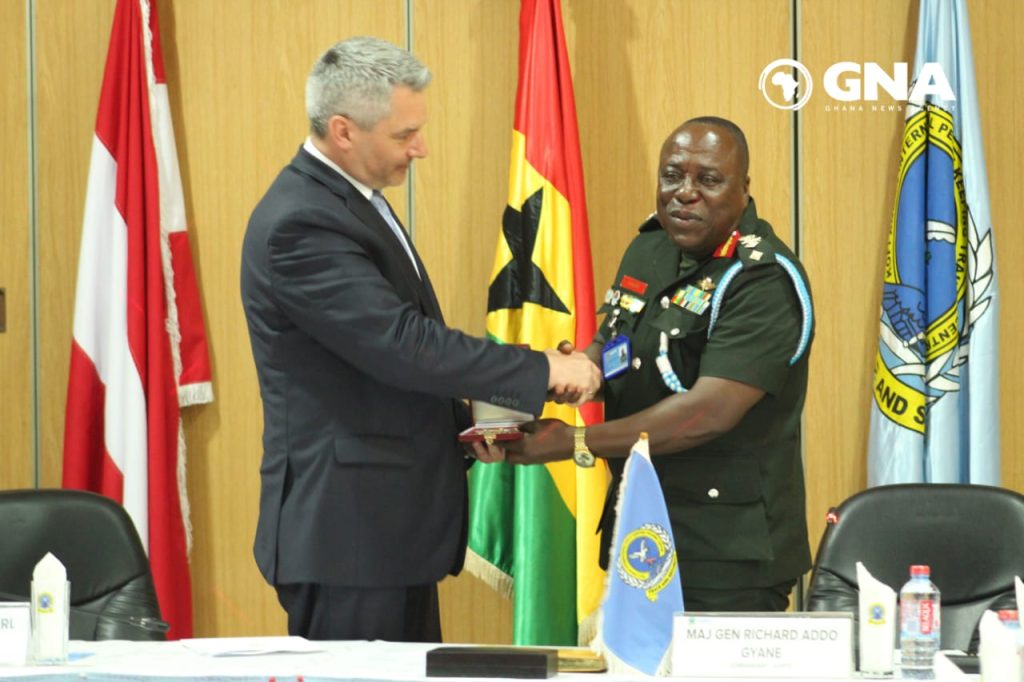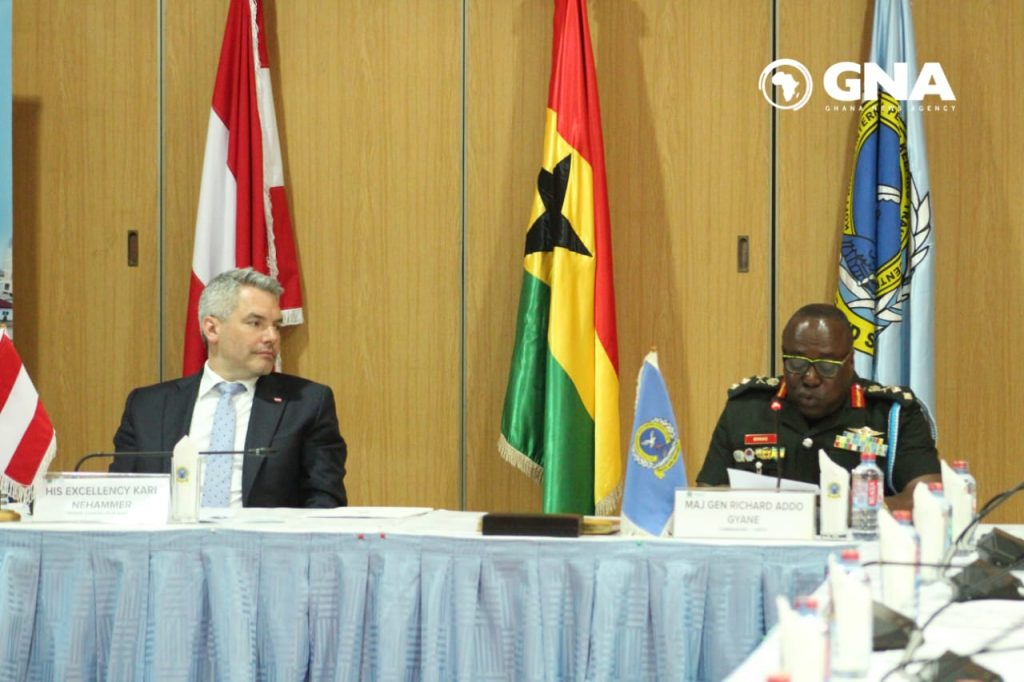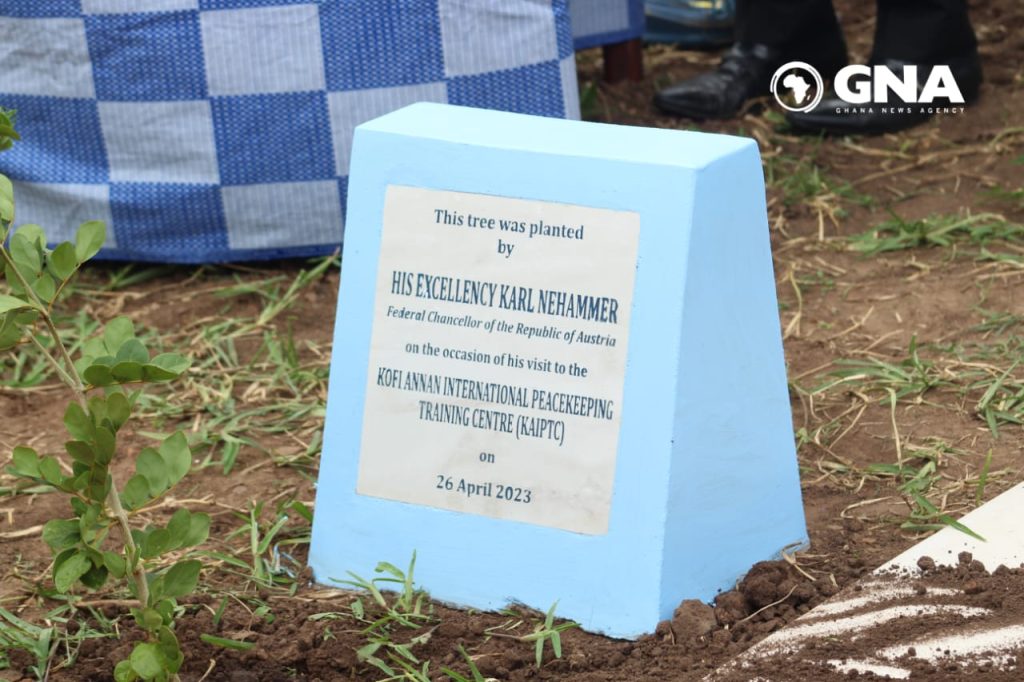By James Amoh Junior
Accra, April 27, GNA – Mr Karl Nehammer, Federal Chancellor, Republic of Austria, says not all challenges of Africa can be solved exclusively at the Government level but appropriate digital and innovative ideas to transform the continent.
He said Austria recognised Africa’s enormous potential for innovations to shape the future of the continent and propel it on a path of sustainable development.
Mr Nehammer, who made the remarks before announcing the Second Edition of the Kofi Annan Award for Innovation in Africa (KAAIA) at the Kofi Annan International Peacekeeping and Training Centre (KAIPTC) in Accra, said digital and innovative ideas had the potential to reduce poverty, foster inclusion and reduce inequality.
The Federal Chancellor was in Ghana to, among others, enhance the long-standing bilateral ties between Ghana and Austria.
With its focus on rapid digitization on the African continent, the first edition of the KAAIA aimed to contribute to the achievement of the UN Sustainable Development Goal “Good Health and Wellbeing” (SDG3).

The awards support promising African social entrepreneurs with a sustainable business model to develop digital solutions for the common good, honouring Kofi Annan’s legacy and commitment to a more fair, just, and equitable world.
It was borne out of the high-level Africa-Europe Forum hosted in the frameworks of Austria’s Presidency of the Council of EU in 2018.
The forum, among others, highlighted the significant impact African entrepreneurs achieve in areas such as health, education, and Africulture through innovative digital solutions.
The Federal Chancellery of Austria, together with its partners, the World Food Programme Innovation Accelerator, the Austrian Development Agency and the Kofi Annan Foundation, awarded the inaugural Kofi Annan Award for Innovation in Africa to three African start-ups.
The Federal Chancellor, thus, announced that the second edition of awards would come off in 2024 with a focus on SDG2 – “Food Security and Zero Hunger.”
He said food security was important for social stability, adding that unfortunately, for some years now, the number of people who lived in hunger globally was on the rise despite efforts by the International Community to end hunger.
Mr Nehammer said the Russia/Ukraine War had caused severe disruptions in food security.
According to him, “More than 140 million Africans are suffering, and the number is constantly increasing.”
Therefore, the Federal Chancellor said it was crucial to promote innovative entrepreneurs whose solutions could “counteract the negative impact of food security caused by the Russian’s war against Ukraine.”
Austria, he said, wished to support in that endeavour and that it would soon invite startups and social entrepreneurs to apply for the second edition of the Kofi Annan Awards.
The awards, he said, had been a great success for all stakeholders involved and represented an important contribution to a partnership between Austria and Africa.
On security, he said the Austrian Armed Forces had a long-standing cooperation with the KAIPTC and had seconded an officer to the centre since 2014.
He announced that an agreement had been reached to extend its cooperation agreement with the KAIPTC for another five years to deepen the mutually beneficial relations that exist between the two partners.
Major General Richard Addo Gyane, Commandant, KAIPTC, said the centre’s work in strengthening the African Peace and Security Architecture and related regional structures and mechanisms of the African Union was possible due to the support of Development Partners, including the Austria Government.
He said: “Even after experiencing so many economic shocks with the aftermath of the pandemic, our Partners have remained faithful and committed to the cause of peace and supported our operations in diverse ways.”
KAIPTC-Austrian Cooperation began in 2014 with an MOU signed in January 2015 to deploy and finance staff to the KAIPTC.

Maj. General Gyane said the support provided by the Austrian government within the context of its current strategy had enabled the KAIPTC to enhance the capacities of ECOWAS, the AU and its relevant structures to perform their mandates in ensuring peace and security in Africa.
“This we have done through the support of our partners including the two courses that are run with the support of the Austrian Government, which are the Humanitarian Assistance in West Africa (HAWA) Core Course and the Political Advisors Course,” the Commandant said.
He expressed appreciation to the Government of Austria for the financial and technical support by seconding an Austrian officer to the Centre and sponsoring an Assistant Course Director for the Humanitarian Assistance Programme and a Gender Expert Project Officer at the KAIPTC’s Women Peace and Security Institute (WPSI) to support the Humanitarian Assistance Program.

“A tree of life” was symbolically planted by the Austrian Federal Chancellor to represent the long-standing relations between the Centre and Austria.
GNA